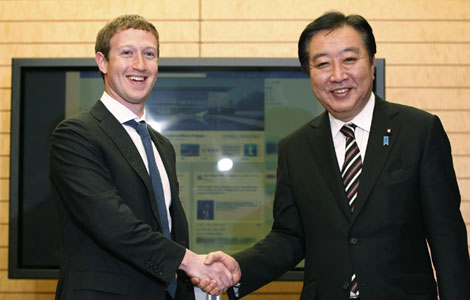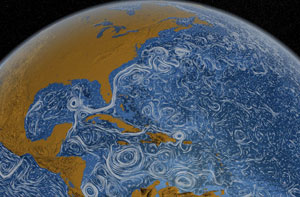 |
|
|
|
|||||||||||
The wealthy, but stagnating, economies do not want change. They would like the world to stay as it is. The poorer, but rapidly growing, economies do want change. They would like to realize the world as it could be.
In the long run both need each other. But advanced economies will seek to retain the status quo, while history will be fueled by the large emerging economies.
With the emerging world pressing for change and the advanced world clinging to the past, it is in the context of a faltering world economy that the fourth BRICS Summit is held in India, on Wednesday and Thursday
In New Delhi, the leaders of the BRICS nations of China, India, Brazil, Russia and South Africa will meet to look at closer coordination that will have a direct bearing on the future.
Among other things, they will further discuss creating a joint development bank to coordinate their financial power. While the talks over the proposed multilateral bank remain in the early stages, such a global tool would enhance coordination among the BRICS countries.
Much has changed since the previous BRICS Summit. During the past year, the United States has lost its triple-A sovereign credit ranking. Meanwhile, the 1.5 percent growth in the eurozone has turned into still another recession, and Japan, which has already had "two lost decades", is struggling with the aftermath of the triple disaster a year ago.
The BRICS economies are not immune to the challenges of the advanced economies and are seeking a larger say in the international system of governance that will better suit their role as the drivers of the global economy.
However, proposed reforms in multilateral international organizations are proceeding slowly, even through economic growth is shifting toward the large emerging nations.
Advanced economies are reluctant to give up their entrenched positions in the International Monetary Fund, World Trade Organization, World Bank and other organizations, which were founded after World War II. As a result, the nations that no longer fuel global growth guide the world economy.
Since the postwar era, the top IMF job has gone to a European and the leader of the World Bank has been an American. In the past, the BRICS were assured that "things will change". But the reality is different.
Last year, Agustin Carstens, Mexico's central bank chief, campaigned for the top post at the IMF, but failed to secure enough support. As a result, the position went to former French finance minister Christine Lagarde.
Next June, Robert Zoellick, who has headed the World Bank since July 2007, will step down. In the past few weeks, the BRICS countries have discussed the selection process of his successor, arguing that the selection should be based on transparency, openness and merit.
The World Bank has received three nominations for the top post. The Obama administration is promoting Jim Young Kim, former director of HIV/AIDS programs at the World Health Organization, while a number of developing nations are supporting Jose Antonio Ocampo, a highly regarded Colombian economist, and Nigerian Finance Minister, Ngozi Okonjo-Iweala, another respected economist and diplomat.
However, Washington has insisted that for the US congress to keep funding flowing to the World Bank, the latter's president should remain an American. Last summer, European leaders insisted that only a European could understand the eurozone crisis.
Both arguments ring hollow. Today, the world economy is becoming increasingly multipolar. In such a world, meeting the demands of the BRICS members for adequate voice and representation in the international community is the only way to ensure that the world is led by those nations that fuel its growth.
What we are witnessing is the eclipse of the old order of international affairs and the rise of a new one. The transition will not happen overnight. But it is in the interests of both the advanced and emerging economies alike that it proceeds with adequate momentum in the right direction.
After World War I, modern world was led by President Woodrow Wilson of the United States, Prime Minister David Lloyd George of Great Britain, and George Clemenceau of France. While the leaders of these Great Powers represented only one tenth of humanity, they made the decisions for the remaining 90 percent.
Today, the BRICS countries are only demanding political power that is commensurate with their economic role. Having already waited for a century, they are hardly being irresponsible.
What is pressingly needed today is a real dialogue between the advanced and emerging worlds. Otherwise, the advanced nations will fall on the wrong side of history.
The author is research director of international business at India, China and America Institute, an independent think tank (USA), and visiting fellow at Shanghai Institutes for International Studies (China) and Singapore EU Center

|

|

|

|

|

|